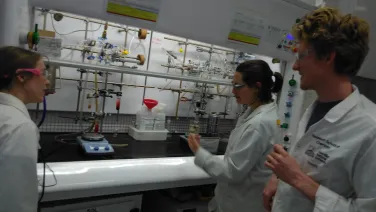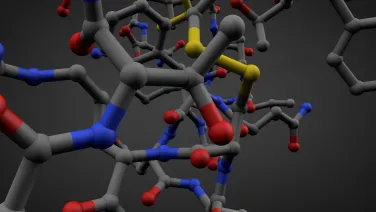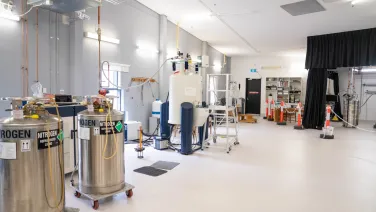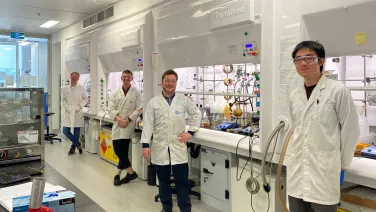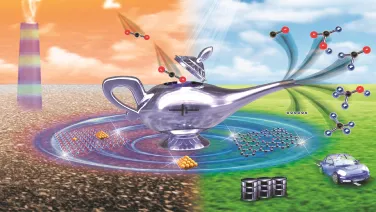
Catalysis
Catalysis is the acceleration of a chemical reaction by a substance that itself does not undergo change.
About
Catalysis is the acceleration of a chemical reaction by a substance that itself does not undergo change. Catalysts can be chemical or biochemical, organic, inorganic or organometallic, soluble or insoluble, molecular or material-based. Catalysts are important because they allow chemical reactions that are otherwise very difficult to achieve. They also give us both new ways and better ways to make molecules. Catalyst design, catalyst function, and the deployment of catalysts in synthesis are all active areas of study at the RSC.

